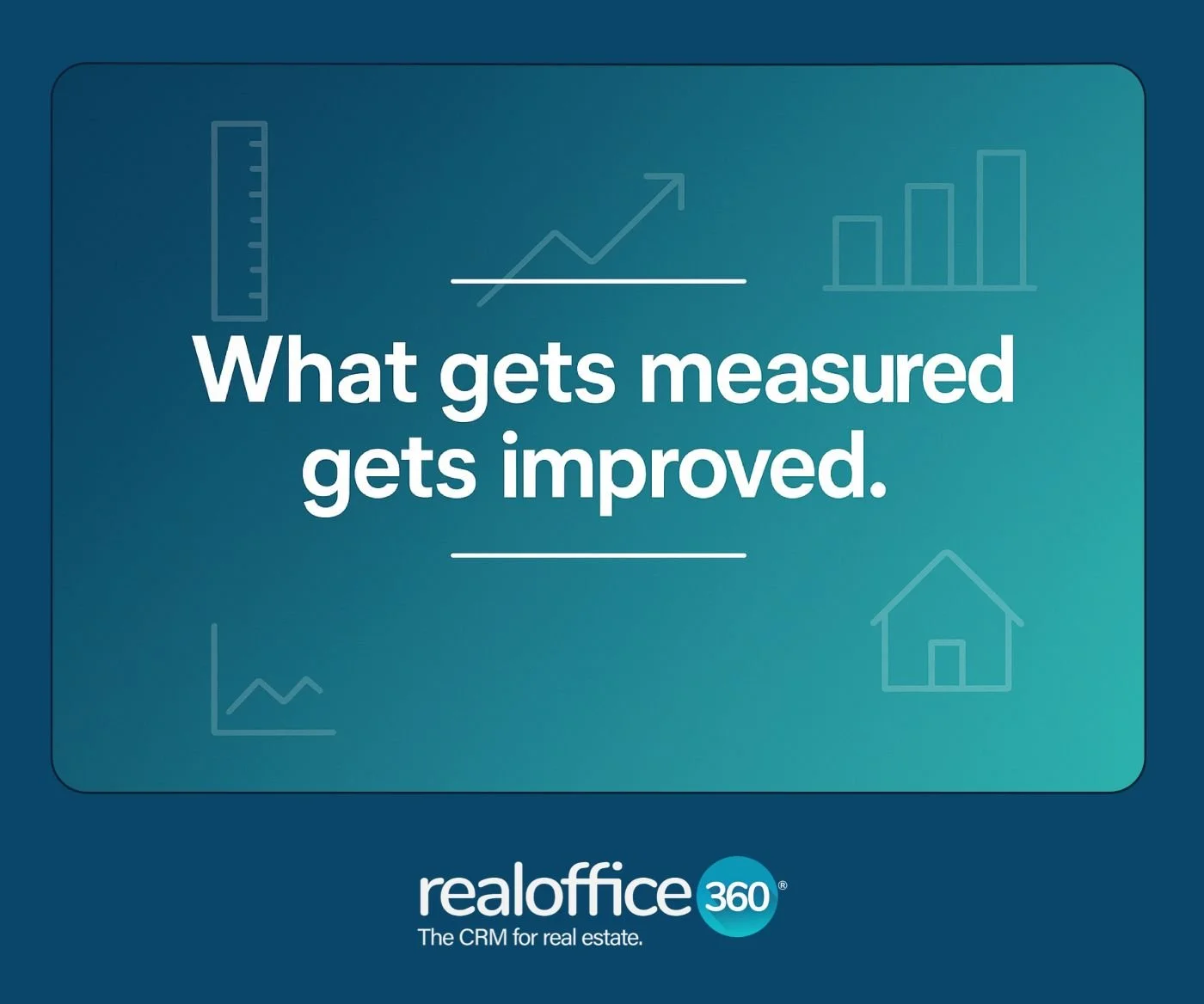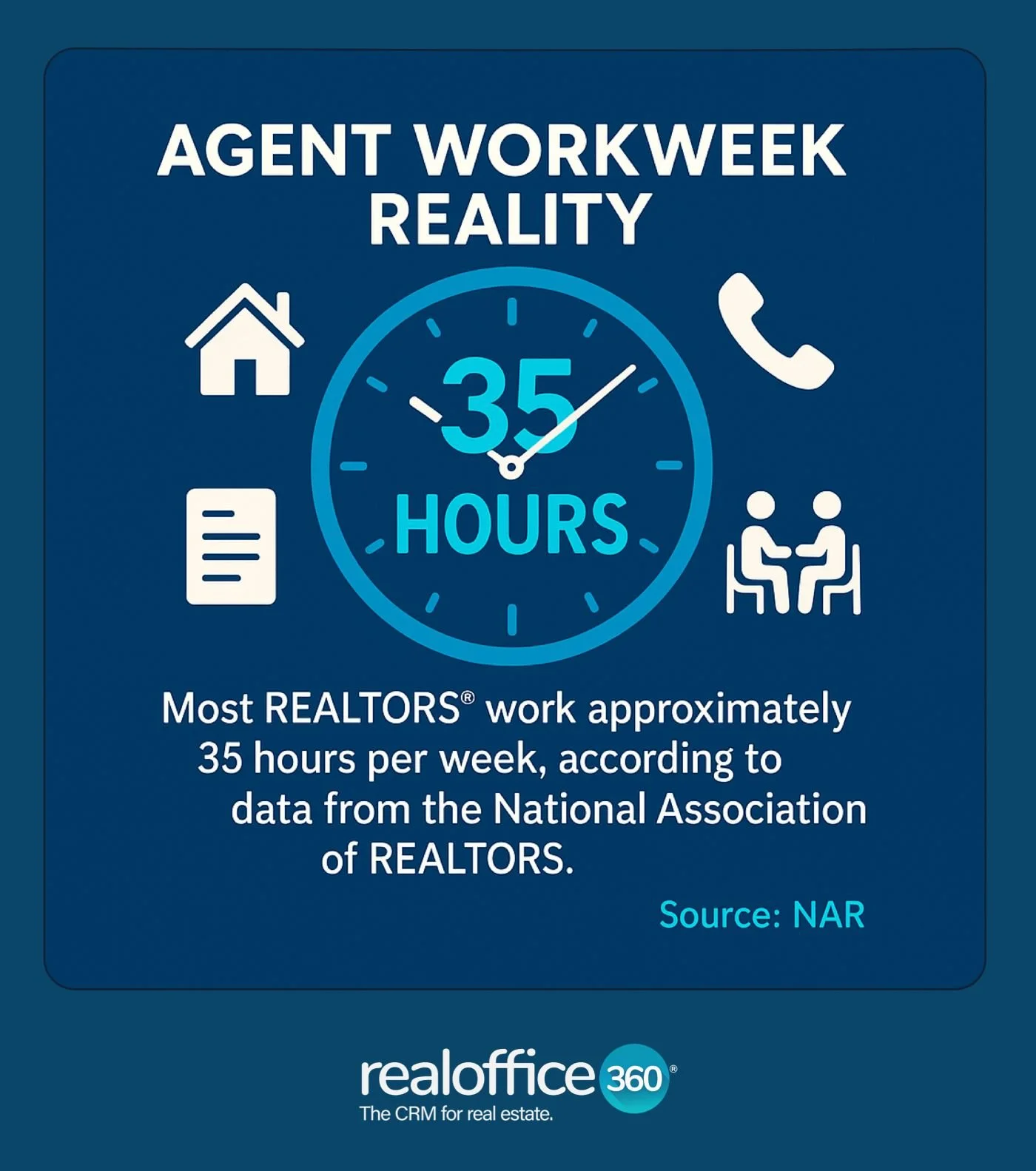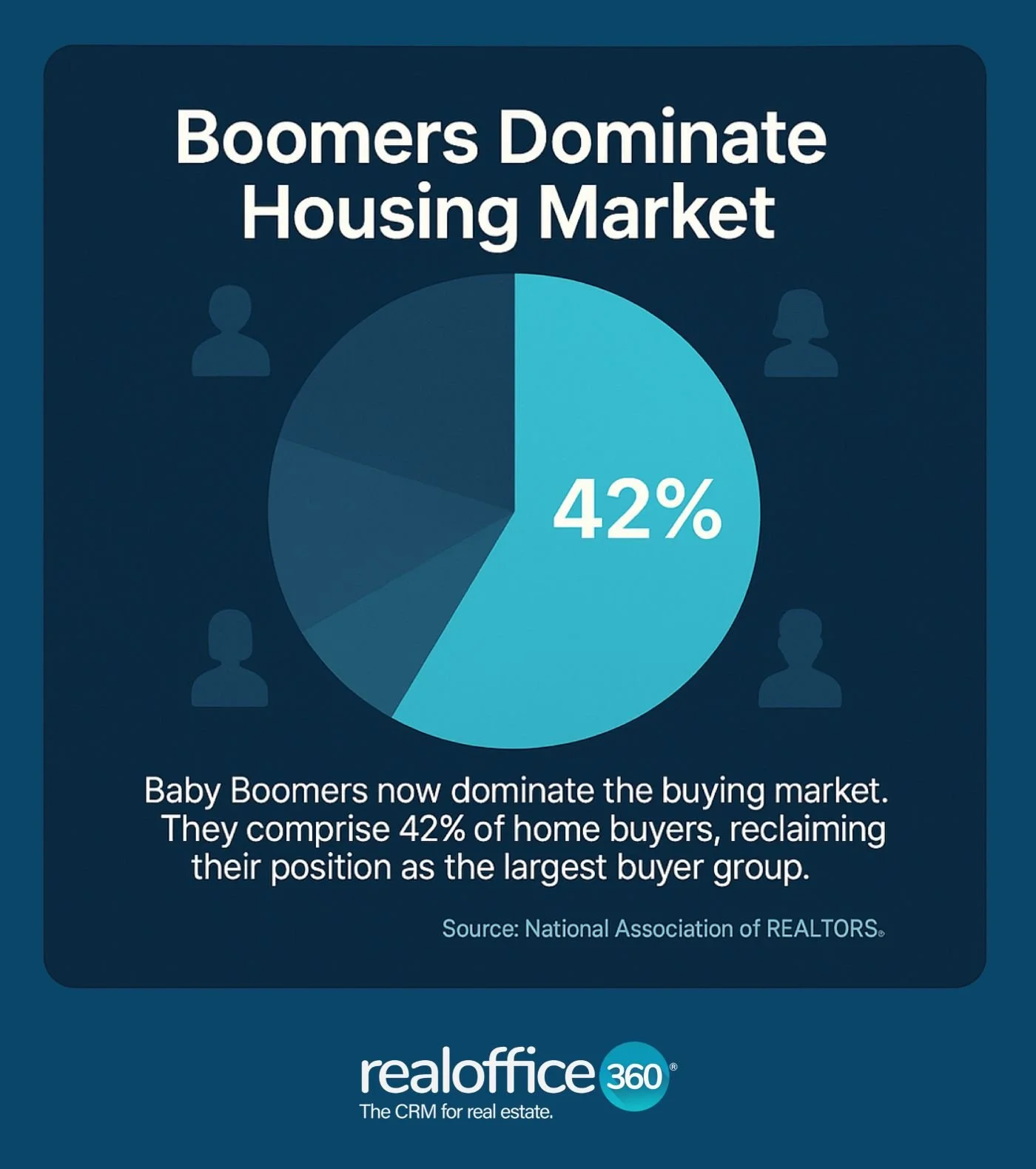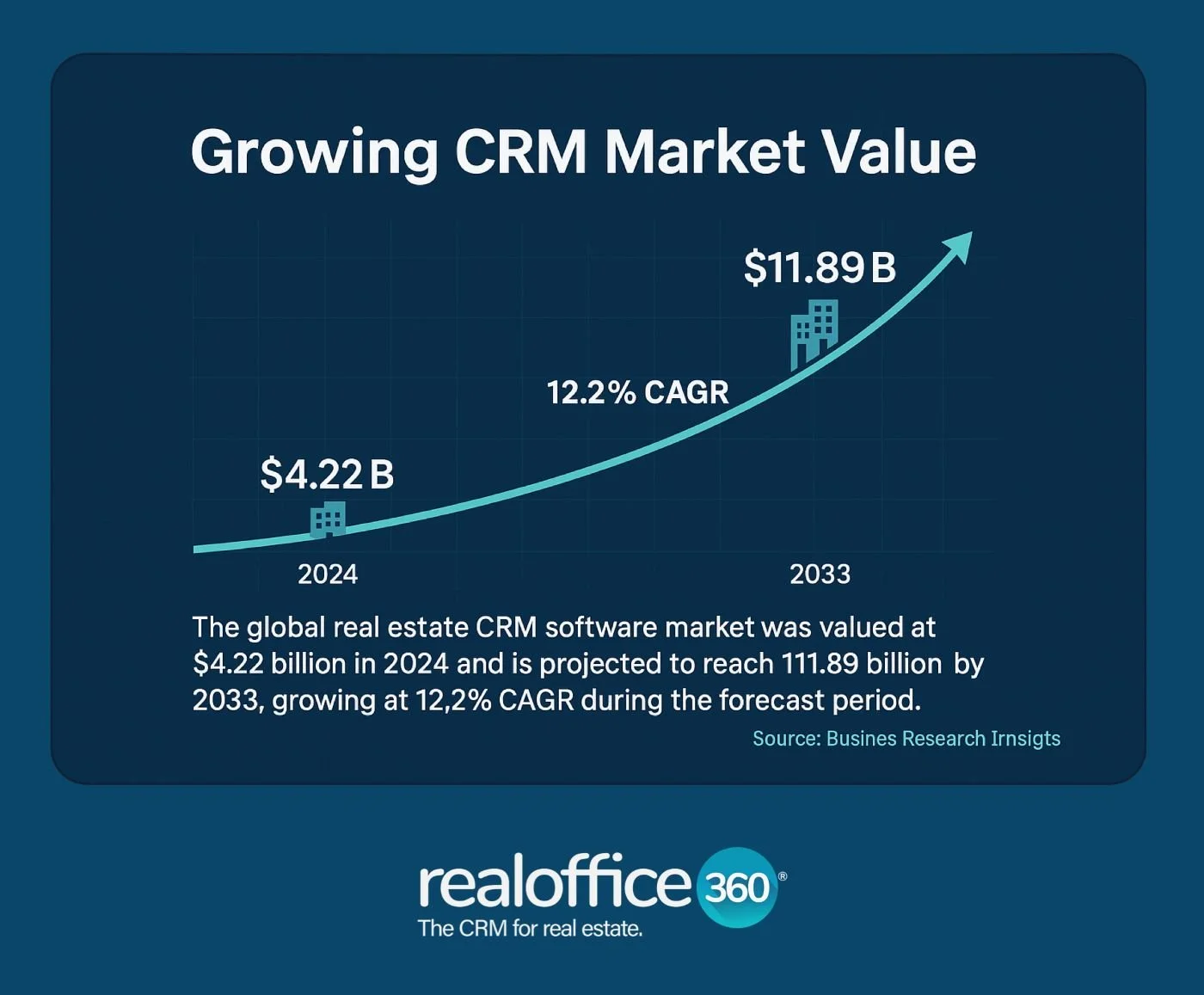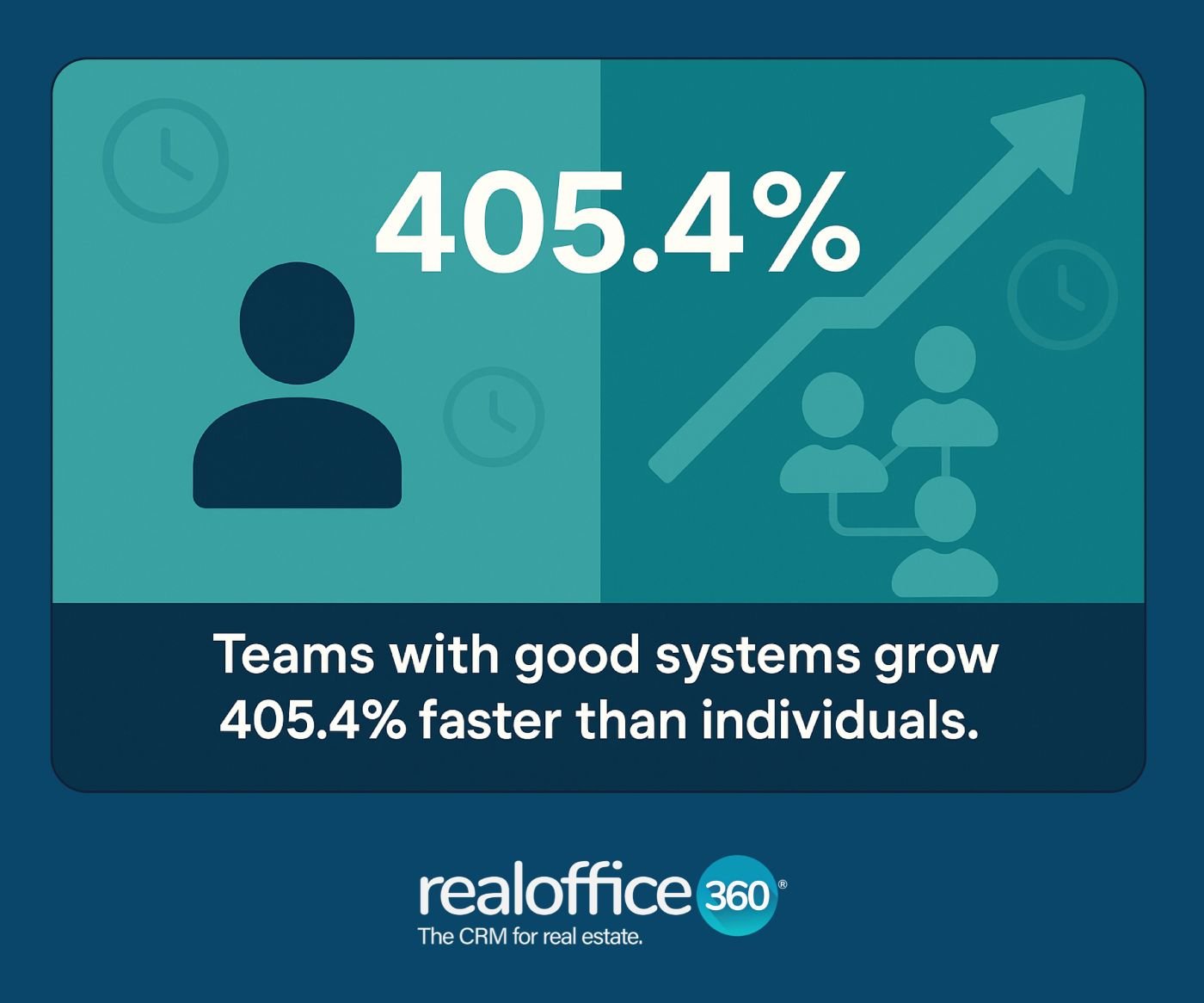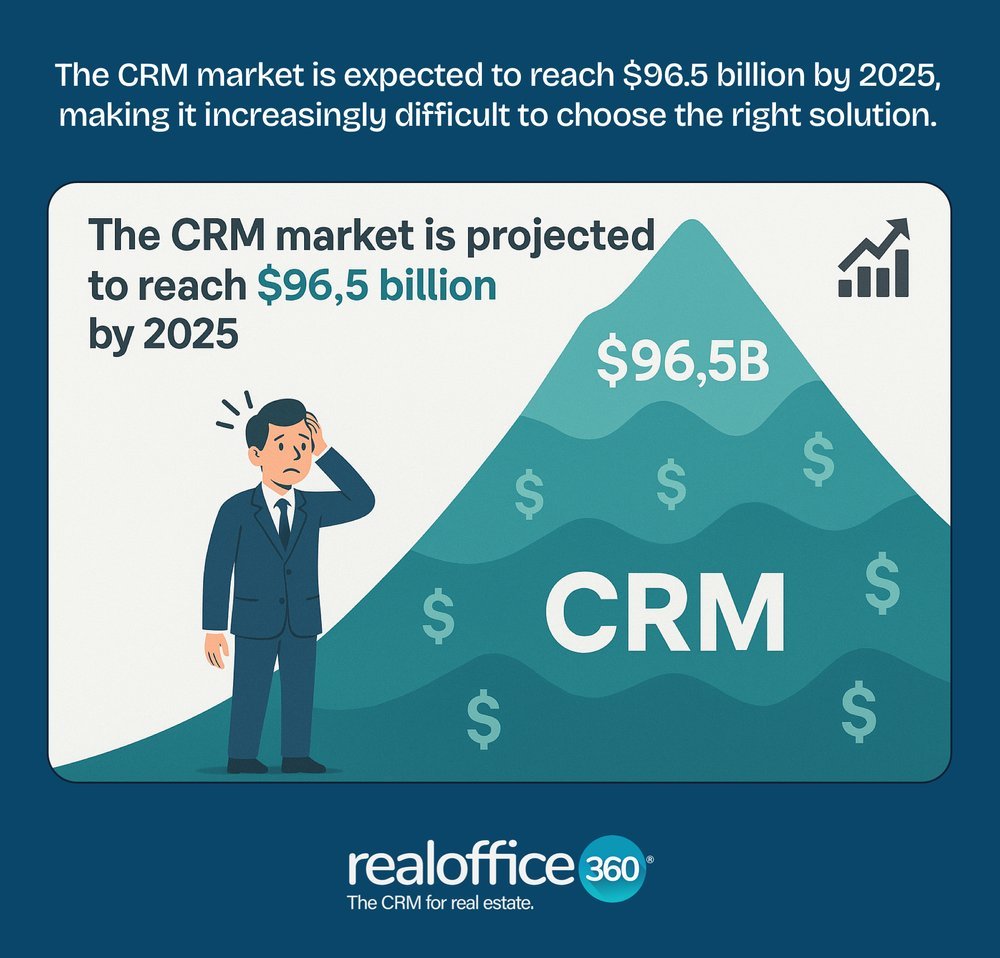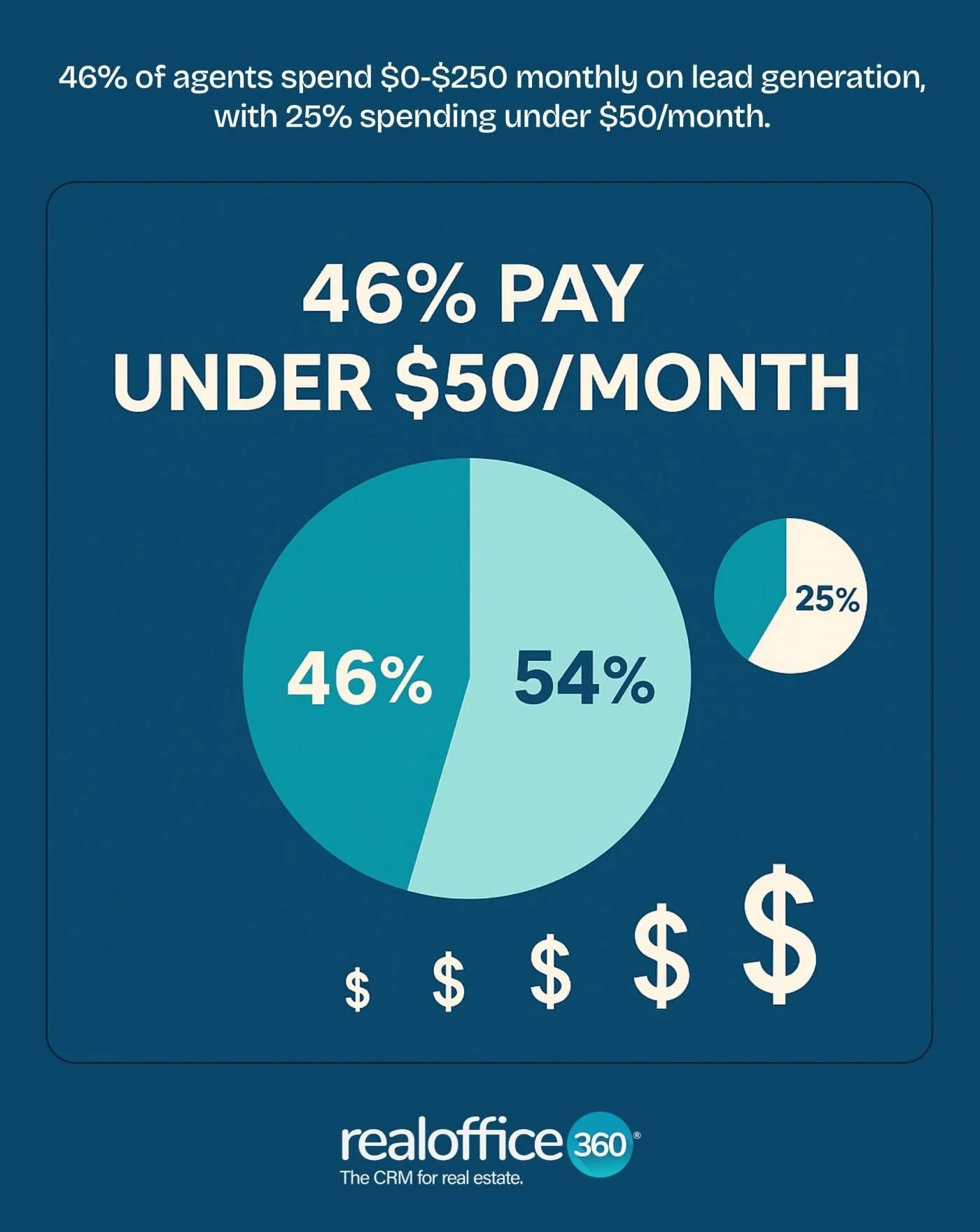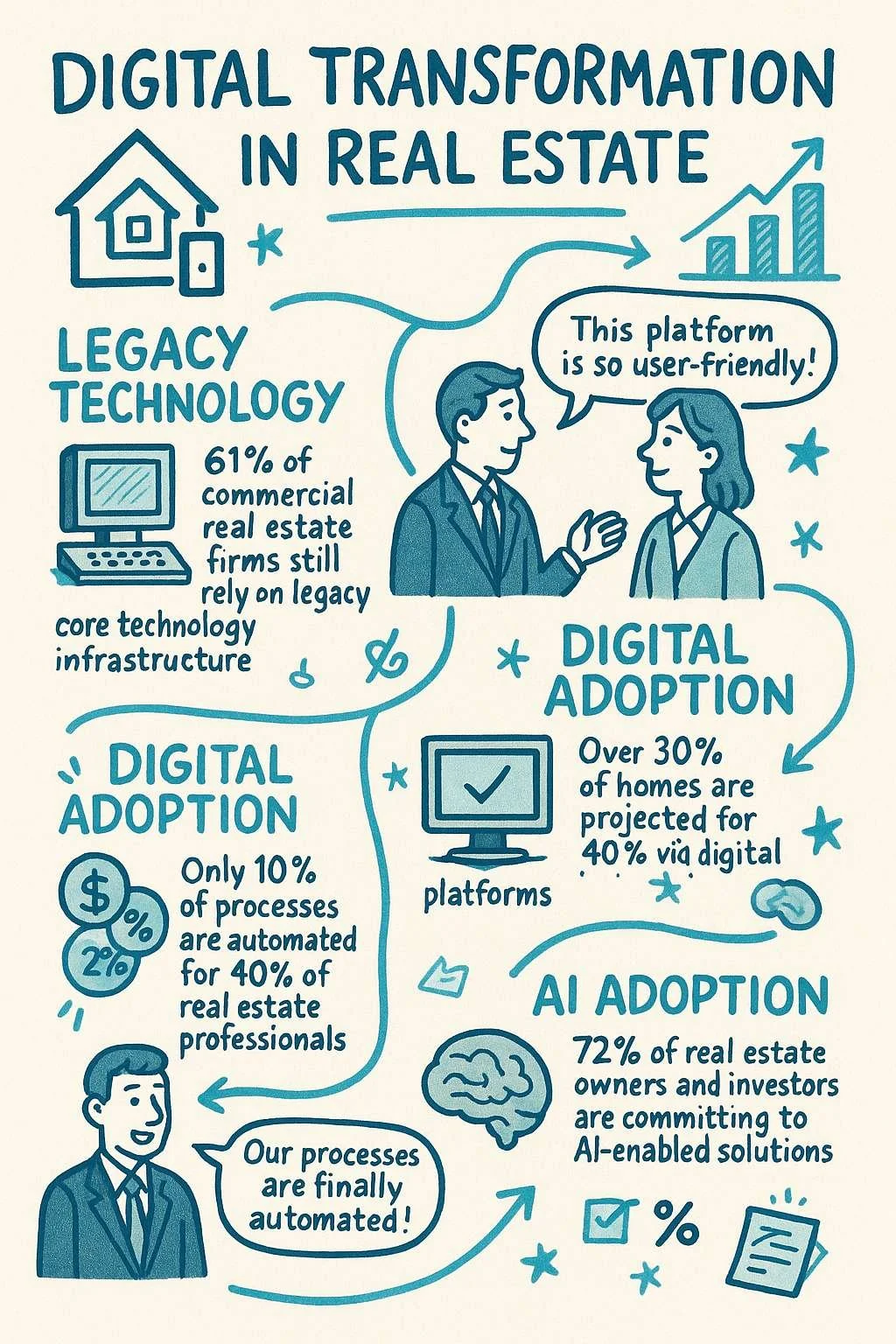
Your Guide to Real Estate CRM, Lead Gen & Marketing.
Stop juggling confusing tech and unpredictable income. This guide breaks down essential CRM, lead generation, and marketing strategies to build a simpler, more profitable business—no matter where you are in your career.
As a real estate agent, you know that consistent communication drives referrals, repeat business, and long-term success. But between showings, negotiations, and closings, finding time to personally email every lead, past client, and prospect feels impossible.
This guide shows you how to use marketing automation email templates to stay connected with your sphere, nurture leads effectively, and turn past clients into your biggest referral sources—all while saving hours every week.
A solid business plan can transform your real estate practice. Too many agents drift through their careers without clear direction, wondering why their income fluctuates wildly from month to month. This guide will help you create a practical business plan that builds stability, growth, and greater satisfaction in your real estate career.
Whether you're a new agent or a seasoned pro, taking time to plan your business activities strategically puts you ahead of most competitors. You'll learn exactly what to include in your plan, how to implement it daily, and which tools can make the process simpler.
You've got leads coming in, but turning them into actual clients feels like trying to solve a puzzle with missing pieces. Every real estate agent knows that generating leads is just the beginning—the real challenge lies in converting those leads into paying clients who trust you with one of life's biggest transactions.
The numbers tell a clear story. While the median agent converts approximately 20% of their leads, top performers exceed 30% conversion rates.
Finding quality real estate leads can feel like searching for hidden treasure. You know the rewards are out there, but you don't know which cards to play. Whether you're a new agent building your first client base or an experienced REALTOR® looking to grow, your lead sources determine your business success.
The difference between struggling agents and top producers often comes down to where and how they find potential clients. This guide will show you how to identify, develop, and nurture the most valuable lead sources for your real estate business.
Effective deal management can transform your real estate business. It's the difference between chaotic, stress-filled transactions and smooth, profitable closings. The right systems and practices help you handle more deals without sacrificing quality or your sanity.
Managing real estate transactions efficiently creates a foundation for sustainable business growth. It allows you to provide exceptional client experiences that generate referrals. This approach builds your reputation as a professional who delivers results.
Managing multiple real estate deals simultaneously feels like juggling while riding a unicycle. You're tracking contacts, deadlines, documents, commissions—all while trying to provide excellent service to each client. This balancing act gets harder as your business grows.
Without a system, things fall through the cracks. That listing appointment gets missed. The closing documents arrive late. The follow-up with past clients never happens. And suddenly, your reputation and income are at risk.
That's where deal flow management software comes in. But with so many options available, how do you choose the right one for your specific needs?
Time management can make or break your real estate career. The difference between struggling agents and top producers often comes down to how they use their hours. Most REALTORS® work approximately 35 hours per week, according to data from the National Association of REALTORS®.
Yet those hours can feel insufficient when juggling showings, listings, client calls, paperwork, and marketing. This guide offers practical strategies to help you maximize productivity. You'll learn systems that successful agents use daily.
Successful real estate prospecting drives your business. It creates a steady pipeline of potential clients and future commissions. Quality leads make the difference between struggling and thriving in real estate. This guide gives you practical strategies to find and convert the right prospects.
The real estate market constantly shifts. Knowing who's buying and selling helps you target your prospecting efforts more effectively. Recent demographic changes offer new opportunities for agents who understand the data.
Real estate success demands the right tools. In today's competitive market, effective marketing tools make the difference between struggling and thriving as a realtor. With 88% of homebuyers using real estate agents as their primary information source, agents need reliable systems to stay connected and visible.
This guide will help you discover the most valuable marketing tools that can transform your real estate business. Whether you're a new agent building your client base or an experienced realtor looking to streamline your processes, the right marketing tools will help you work smarter, not harder.
Real estate is a relationship business at its core. For realtors, managing client relationships effectively can mean the difference between a thriving practice and constant struggle. The right client management software gives you tools to nurture these crucial relationships while keeping track of deals, tasks, and communications.
This guide explores the best client management software options for realtors who prioritize relationship-building over mass marketing approaches. You'll discover solutions designed specifically for real estate professionals who want to create sustainable businesses through referrals and repeat clients.
The real estate industry thrives on relationships, but successful agencies need more than just great people skills. They need efficient operations systems that support agents and streamline business processes. For real estate firms looking to scale, a dedicated Business Operations Manager can be the difference between controlled growth and chaotic expansion.
But what exactly does this role mean, and how can you excel in it? This comprehensive guide examines the critical role of operations management in real estate and provides actionable strategies for success.
In today's competitive real estate market, having the right tools makes all the difference. You're juggling client relationships, property details, and follow-ups while trying to build your brand. A white label real estate CRM might be the solution you haven't considered yet. This powerful approach lets you offer branded client management tools without building software from scratch.
Think about it - what if the technology your agents use every day reinforced your brand instead of someone else's? What if your clients experienced your company's look and feel at every touchpoint? That's exactly what white label solutions deliver.
Ask any successful real estate agent about their most reliable source of business. The answer is rarely paid leads or fancy marketing campaigns. Instead, it's their sphere of influence – those people who already know, like, and trust them. Your sphere of influence (SOI) represents your most valuable business asset as a real estate professional.
The data supports this approach. While 90% of home buyers start their property search online, personal connections still drive the agent selection process for many clients.
Productivity is important in real estate. Your time is your most valuable resource as an agent. But are you spending it in the most effective ways? Measuring your productivity will give clarity. You’ll identify and spend more time on activities that truly develop your business.
Many agents work really hard, but the results just don't match. They are busy and work throughout the day, but they have no idea why their commission check isn't equivalent to the work they've done. This happens when agents do not have the right productivity indicators.
Managing client relationships in real estate feels like spinning plates. You're juggling active buyers, past clients, new leads, and referral opportunities—all while trying to close your current deals. Many agents reach a breaking point where sticky notes and spreadsheets just don't cut it anymore.
Yet when most agents look for a solution, they find themselves drowning in complex CRM platforms that seem designed for corporate sales teams, not relationship-focused real estate professionals. These systems often create more problems than they solve.
Having the right marketing tools isn't just helpful—it's essential. Whether you're a new agent building your sphere of influence or an experienced REALTOR® looking to streamline your client relationships, the technology you choose can make or break your business growth.
The challenge most agents face isn't a lack of options—it's quite the opposite. With countless tools promising to deliver leads and enhance client engagement, how do you know which ones actually deliver results without requiring a computer science degree or breaking the bank?
The real estate card game is tricky. You never quite know which cards you'll be dealt or when the market might shift. But one thing remains constant - you need a steady stream of clients to build a sustainable business.
Whether you're a new agent looking to build your first client base or an experienced pro wanting to expand your reach, finding quality clients consistently ranks among the top challenges in the industry.
The good news? You have more options than ever to connect with potential clients.
The real estate market is competitive. You're playing cards with potential clients, but you don't know which cards you'll be dealt. Successful agents need a consistent pipeline of quality leads to sustain and grow their business.
Lead generation isn't just about collecting contact information. It's about connecting with potential clients who might actually buy or sell property through you. It's the difference between spinning your wheels and driving your business forward.
In real estate, your contact list is your livelihood. Every relationship has potential to drive your real estate business forward through repeat business, word-of-mouth and referrals. Yet, for a lot of real estate professionals, organizing their network of contacts is a struggle that continues unchecked.
In this guide, I'll walk you through the exact steps to build, organize, and leverage your contact database for long-term success. You'll learn practical strategies to turn your network into your greatest asset.
Time slips away fast in real estate. Between showings, client calls, paperwork, and prospecting, your day vanishes before you know it. Yet some agents consistently close more deals without working longer hours. Their secret? Masterful time management.
In this guide, you'll discover practical time management strategies specifically designed for the real estate profession. These aren't generic productivity tips – they address the unique challenges you face daily as an agent. Let's dive in.
The real estate landscape is changing fast. Client expectations are higher than ever, market conditions shift rapidly, and competition keeps growing. As an agent, you're juggling countless tasks while trying to maintain those all-important personal connections with clients. Your CRM system should help, not hinder this process.
Traditional CRM systems often create more work than they solve. You're probably tired of data entry, forgotten follow-ups, and clunky interfaces that make relationship building feel mechanical. This is where artificial intelligence is creating a revolution in how agents manage client relationships.
Let's face it – managing leads, clients, listings, and follow-ups is a lot like spinning plates: Which lead needs nurturing today? Which past client is having a home anniversary?
The days of having a great real estate CRM as a “bonus” for your business are over. Today, the right CRM is the difference between a disjointed, overwhelming business that leaves money on the table… or a streamlined, organized machine that cultivates more prospects into clients and more clients into lifelong advocates.
Lead generation defines your success. In real estate, the quality and quantity of your leads directly impact your income and business growth. Traditional methods like buying leads or cold calling aren't working like they used to. Today's market demands fresh approaches.
This list is packed with actionable tips. We’ll walk you through everything—from inexpensive digital lead generation methods to relationship-building activities that generate highly qualified leads. Each strategy has been proven to work, whether you’re a new agent or a seasoned pro. Now, it’s your turn. Pick a few ideas to try.
You’ve purchased a CRM. You dutifully enter your leads. But are you using all of that precious data to improve your business. If you’re like most real estate agents, you’re sitting on a wealth of information that could supercharge your sales efforts … if you knew how to use it.
Your CRM tells you which lead sources are optimal for you, which clients need to hear from you, and where you should be spending your time for the ultimate return on investment.
The clock reads 9:30 AM. You have three client calls, two property showings, paperwork for a pending transaction, and a seller waiting for feedback from yesterday's open house. Sound familiar? For real estate agents, managing multiple priorities isn't just a challenge—it's the daily reality.
In today's competitive market, how you manage your tasks can make the difference between thriving and merely surviving. When every minute counts, having a system that keeps you organized isn't a luxury—it's essential.
Working in real estate is all about relationships – with prospects, clients, service providers, colleagues, and more. As an agent, your success with your leads and clients directly affects your commissions and income. It’s hard to keep all of those relationships together, too, if you have to rely on spreadsheets, sticky notes and memory.
Pause for a second and think about your current system. How many follow-ups have you let fall through the cracks this month? What potential buyers should have received your new listing alert? When was the last time you checked in on past clients? If a few of these questions made you cringe, you’re not alone.
What you don’t need is to work harder or hire an assistant (at least, not yet). What you need is a system – specifically, a Customer Relationship Management (CRM) system, designed for real estate professionals.
In this guide, we’ll take a deep dive into why a CRM has become a must-have in your toolkit if you want to build a sustainable (and profitable) business as an agent.
The real estate industry stands at a crossroads. Technology is reshaping how property is bought, sold, and managed, yet the business remains fundamentally about human connections. As digital tools proliferate, finding the sweet spot between innovation and personal touch has never been more crucial.
The numbers tell a compelling story. Deloitte’s 2024 Commercial Real Estate Outlook Survey found that 61% of commercial real estate firms still utilize legacy core technology infrastructure. 49% are actively working on modernizing, it found. (Deloitte)
In this article, we will explore five practical approaches to more effectively humanizing your real estate tech strategy. Together, they will ensure your digital transformation will enhance, not replace, the personal connections that power your business. They work whether you're at the start of your digital life, or aiming to make more of a cohesive whole from a varied tech stack.




